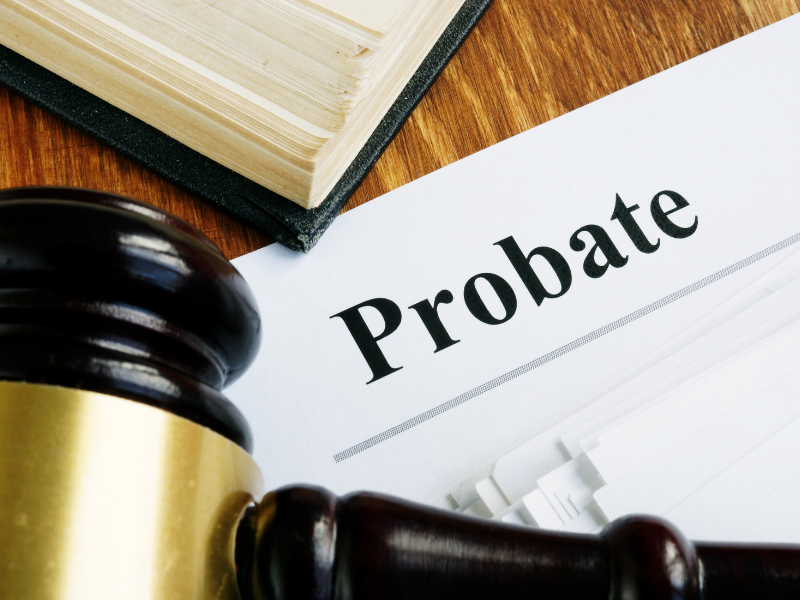Probate 101 (Part 3): What Can You Do If Your Executor Is Not Doing His Job?
by Michelle Chew Ai Phin ~ 3 May 2021
In our previous articles entitled “Probate 101 – Executor’s duties” and “Probate 101 – Executor’s breach of fiduciary duties”, we have explored the main duties and responsibilities of an executor and the implications facing an executor if s/he fails to properly administer the deceased’s estate.
This time, let us look at the options available to beneficiaries in case an executor breached his/her fiduciary duties. It is trite that executors owe beneficiaries a fiduciary duty to administer the estate in good faith. Breaching such duty would attract personal liabilities on part of the executor.
Prevention is Better than Cure
Before filing an action in court against an executor, it is always advisable for you to ascertain with the executor, the administrative process that is ongoing or has taken place to ensure that the legal action is not taken unreasonably. Delays in or non performance of the executor’s duties may be due to undue circumstances in the administrative process.
In any event, a beneficiary can enforce his/her rights to demand for the executor to provide a complete inventory and accounts of the estate for clarity. Should the executor fails to provide you, as a beneficiary, with the accounts and inventory and/or accounts for the estate, the beneficiary has the right to seek legal assistance in demanding for the same.
Administration Action
If there is a dispute between the beneficiaries and executor, the beneficiaries can commence an administration action against the executor at the High Court to obtain directions on questions that arose during the administration process under Order 80 of the Rules of Court 2012.
The primary purpose for such action is to resolve difficulties faced by the interest parties in the estate administration. The action is non-confrontational in nature as it is not meant to remove or deprive an executor of the probate granted. By commencing an administration action against the executor, you can seek the High Court’s directions on the determination of any question in relation to:
- The administration of the estate of a deceased person or in the execution of a trust;
- The composition of any class of person or a beneficial interest in the estate of such person or in any property subject to a trust; or
- The rights or interest of persons claiming to be a creditor of the estate or to be entitled under a Will or on intestacy of a deceased person or to be beneficially entitled under a trust.
[see Order 80 rule 2(2) of the Rules of Court 2012]
The court is then empowered to make orders listed in Order 80 rule 2(3) of the Rules of Court 2012:
- Requiring executor to furnish and verify accounts;
- Requiring the payment into Court of money held by the executor;
- Directing executor to do or abstain from doing a particular act;
- Approving any sale, purchase, compromise or other transaction;
- Directing any act to be done in the administration of estate.
Removal of the Executor
In situations where the beneficiary is of the view that the executor has committed severe misconduct in the administration of estate, he or she can seek the removal of the executor by applying to the High Court under section 34 of the Probate and Administration Act 1959 to revoke the Grant of Probate.
The test for the removal of executor is by showing “any sufficient cause” for such removal. The onus is on the applicant, i.e. the beneficiary, to establish that there is sufficient cause for the revocation of Grant of Probate to take place (see Palaniyappan v Ramanathan Chettiar [1977] 2 MLJ 34). However, the term “sufficient cause” is not defined in the Probate and Administration Act 1959, and hence such actions will hedge largely on the circumstance of each case based on questions of facts. Case laws have shown that the welfare and interest of beneficiaries are of paramount consideration in such application. Some examples are as shown below:
- Ligar Fernandez v Eric Claude Cooke [2002] 5 MLJ 177 – applicant will have to adduce sufficient evidence to raise a strong suspicion of the executor’s inaction, want of diligence and dishonesty or a conflict of interest situation or inability to act;
- Damanyanti Kantilal Doshi & Ors v Jigarlal Kantilal Doshi & Ors [1998] 4 MLJ 268 – the executors have failed to take preliminary steps in the administration, failed to render accounts, failed to take appropriate steps to prevent dissipation of assets, and have shown active hostility towards the beneficiaries. The court held that there was enough material to support the allegations levelled against the executors that they had not properly discharged their duties in the interest and welfare of the beneficiaries.
- Mak Chee Chong v Rockwills Trustee Berhad [2016] 10 MLJ 124 – the fact that the relationship between the beneficiary and executor has deteriorated to the extend that the executor can no longer effectively administer the estate constitutes “sufficient cause”.
The process of removing an executor depends entirely on the complexity of the matter; one that may take months or years to complete.
Conclusion
In a nutshell, it is pertinent that the selection of an executor(s) to administer an estate is of utmost importance. An executor who is responsible, adequately skilled and trustworthy can ensure a smooth administration and distribution of the estate in question.
As an executor, it is always wise for one to understand that entails the role of an executor before diving in head first. Seeking legal advice is also a safe option to prevent and/or mitigate disputes in the administration process.

